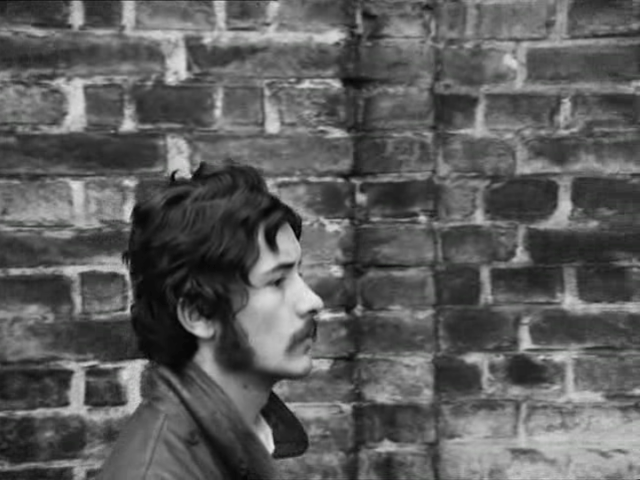 |
| Karl Scheydt in The American Soldier |
Rosa von Praunheim: Elga Sorbas
Jan: Jan George
Doc: Hark Bohm
Cop: Marius Aicher
Chambermaid: Margarethe von Trotta
Gypsy: Ulli Lommel
Magdalena Fuller: Katrin Schaake
Singer: Ingrid Caven
Ricky's Mother: Eva Ingeborg Scholz
Ricky's Brother: Kurt Raab
Prostitute: Irm Hermann
Police Chief: Gustl Datz
Franz Walsch: Rainer Werner Fassbinder
Director: Rainer Werner Fassbinder
Screenplay: Rainer Werner Fassbinder
Cinematography: Dietrich Lohmann
Film editing: Thea Eymèsz
Music: Peer Raben
Is The American Soldier an hommage to American film noir or is it a satiric glance at the ongoing European fascination with that genre? I like to think that it's the latter, Fassbinder's snarky take on the movies' hard-drinking anti-heroes who, like Alain Delon in Le Samouraï (Jean-Pierre Melville, 1967) for one example, affect trenchcoats and fedoras as they go about their murderous business. Surely Ricky's sharply angled hat and his omnipresent bottle of Ballantine's are tongue-in-cheek allusions to those cinematic predecessors. The American Soldier isn't up to much else. Fassbinder is playing around with his usual company as well as giving himself another opportunity to play a character named Franz Walsch, which he did in Love Is Colder Than Death (1969) before handing over the role to Harry Baer in Gods of the Plague (1970). The film's real highlight is its loopy, nonsensical ending, in which Ricky's brother wrestles with the dying Ricky as their mother looks on impassively. Otherwise, it's really for Fassbinder completists.
